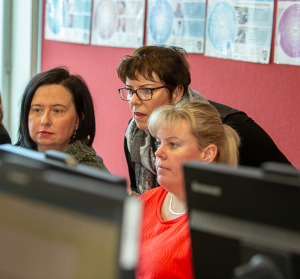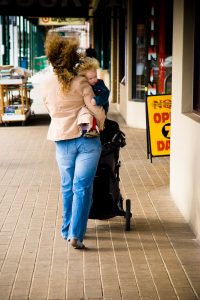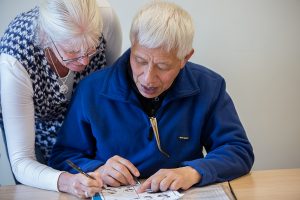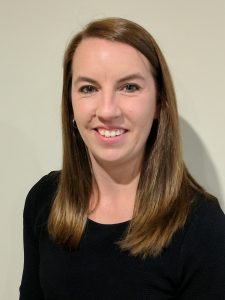Leading in adult literacy

A professional development program to improve adult literacy and numeracy teaching is underway across Victoria.
The Adult Literacy and Numeracy Practitioner Program (ALNPP) which kicked off in July trains adult education teachers in how to build literacy and numeracy skills and integrate them into a range of different subjects in preaccredited programs.
Nineteen highly skilled adult literacy and numeracy practitioners completed the ALNPP in stage 1 and are now mentoring around 260 adult education teachers working in Learn Locals across the state.
Using a web-based platform, all participants complete modules on theory, using frameworks, identifying requirements and innovative teaching. The platform includes a community of professional practice and online forum where participants attend expert workshops, meet to discuss the curriculum and its implications, interact with experts in the field and develop the confidence they need to improve their daily teaching.
Vanessa Watson works as a CGEA and EAL teacher at Bass Coast Adult Learning in Wonthaggi. She began her working life as a teacher and later retrained to teach literacy, then after a long stint in management and research she did TESOL training and works around 3 days a week teaching foundation skills.
‘I work in Wonthaggi which has one of the lowest literacy rates in Victoria and although we don’t really we know why, we do know it’s a generational problem. So if people are going to escape that poverty cycle we need to be teaching literacy at both ends — to children and parents —and I want to be part of changing that. I’m passionate about low level literacy so when I heard about this training program I was like, “Pick me! Pick me! Pick me!”
‘So I was very, very excited when I was selected. It’s a course that’s directed straight at low level literacy and numeracy and I felt excited to be getting those skills and sharing them with colleagues. I also had the time to do it and I love learning. It’s my thing.
‘The course was just brilliant. It’s broken into four units that are really tailored to what we need to know. There’s no padding. It’s incredibly well put together with brilliant resources and research and examples and things that you can apply straight away.
‘I noticed a real change in my mindset after I did it. It had a lot of what I needed. It was fantastic for revising my understanding of A-Frames and the ACSF framework but it also challenged me about whether what we are providing at BCAL is what the community really needs or is it what we think they need.

‘We did a lot in the course about the idea of psychological safety and so that encouraged me to look at our physical environment. We run a reading course out of a building and there are people in our area who might be scared or put off by having to walk inside what looks like a school building if school was an unhappy experience for them. I love the idea of taking our classes out to where people gather. For example, running a reading resilience course at a local mum’s group or having mums writing books for their children as a way to engage them in literacy. The course changed how I look at things and shifted the emphasis to looking at our community in a more holistic way, and going out and meeting people where they are instead of expecting them to come to us. That’s been really exciting.
‘I’ve just finished the second phase of the project which involved me mentoring ten other people working in seven different Learn Locals in our geographic area. The responsehas been terrific. We met five times for Q & A sessions and to share stories and resources as they worked their way through the course.
‘I was nervous at first. The first week was rather nervewracking because I was working with these incredibly talented teachers who are amazing at what they do and had all sorts of wise advice to offer. But I got over it quickly. By the end of the second week I had relaxed and was really enjoying it. It was totally fantastic because we have established a new network of people in our geographic areas who are growing ideas together and it was really fun.
‘As a mentor my role was making sure everyone is participating and putting in and sharing in the conversation and that worked really well. Everybody loved the online course.
‘There is so much material you need to work through during the second, mentoring stage. The greatest delight for me was having to go back and do the course again. The second time round I got so much more out of it. It’s resource rich, it’s laid out so well and it’s really accessible and easy to follow. And all the mentees said the same.
‘Successful mentoring for me is all about facilitating connections and conversations and passing on your enthusiasm.
‘I plan to do my Masters in adult education next year. I want to see changes in literacy rates in Wonthaggi and my research will help me work out how to do that.’

Dale Pobega works part time as an EAL teacher at Wyndham Community Education Centre in Melbourne’s west and as a consultant. Dale was interested in doing the training because COVID and working from home provided the opportunity and because of his longstanding interest and involvement in online training.
‘I also got involved because I thought it would be a good refresher for me. I think the concept of being a participant who is a mentor second time round is a great one.
‘I think what was useful for me going through the program was stepping back and reviewing stuff I already know. It gave me an opportunity to rethink a lot of my own positions. The other thing was that every module invited a guest participant, someone who can throw a different light on the material, so there’s lots of different voices in the discussions.
‘It’s given me a fresh perspective and made me think very critically about what I do and why and that’s a great thing.
‘I think they’ve done a fantastic job developing the training program. I appreciate how much they put in. They were so responsive, and that kind of personal involvement and ability to set up relationships and great networking has really been invaluable.’
Dale says the mentoring role involves making it enjoyable for participants. ‘You’ve got to engage people, bring the material alive or lose them. The discussion forum demonstrates how engaged the participants have been — it is huge, they are responding, reflecting, talking about their reading and writing fantastic stuff. I hope it will have a real impact on teaching too.
‘That central facilitation role is a key one. I am fortunate in having a ‘co-pilot’ in my colleague, Meg Cotter who has been working in the field for a long time and has an excellent knowledge of all the key areas in the course. Meg and I are constantly bouncing ideas off one another. Two heads are better than one. And it is just going beautifully.
‘The value of ALNNP is that it’s economical and practical. It offers much needed short, structured, continuous, and time flexible upskilling. I think our traditional models of PD are tired and for the most part not very useful. If most ACE teachers, for instance, are working part time or casually the question is when do they get the opportunity to come together for face to face training? Most people are being squeezed by the demands of work and home. We need more programs like the ALNPP that can fit in with our busy work schedules and lives.’
Erin Crockett is ACFE co-ordinator responsible for pre-accredited training at Taskforce in Melbourne’s south east.
‘I found the ALLNP extremely helpful. It really helped me to look at strengthening and evaluating courses to fit in with Adult Community and Further Education (ACFE) Board’s strategy.
‘The ALLNP is going to improve the skills of our workforce and the reputation of pre-accredited training so that it is highly regarded and recognised within the education sector. For example, if someone has a Certificate in Hospitality from a Learn Local it is regarded as a big stepping stone into a Certificate 2 at TAFE.
‘Every Learn Local is different so this training ensures a consistency and improves the quality of delivery.
‘My role is designing and evaluating courses so this is where I found the ALLNP to be extremely helpful for assessing things like work readiness.
‘Phase one of the ALLNP was very in depth and thorough, and more work than I expected. I got a lot out of it as a refresher. I encourage every ACFE trainer to do the course.
‘The most useful thing for me was going over learning theories and applying them to the current curriculum design. I use that now in evaluating and supporting trainers and I’ll ask “You know your objective and what you want to achieve but have you thought about doing it this way?”
‘I’ve got 13 in my mentoring group from around 12 different organisations so it’s a good representation. I’ve had very good feedback. It’s a mixed group and there’s a lot who have been teaching ESL and LLN for a while, as well as people who are new and less experienced. They are learning from each other.
‘I’m not there to lecture on course content, I facilitate discussions. I help guide conversations, bring out examples and experiences and strategies in teaching LLN. A lot of them have mentioned how refreshing it is to go back to revisit things like different learning theories. It also brings ACFE requirements, A frames and processes together and ties everything in so people feel part of it. Everyone loves the resources, they are really high quality.’
‘Being involved in the mentoring is really rewarding, there’s so much positivity and seeing people excited and improving really shows the value of the course.’
The ALNPP was developed as a joint initiative between Adult Learning Australia and ACEVic who partnered to design and deliver the program for the Department of Education and Training on behalf of the Adult Community Further Education Board.





































































































